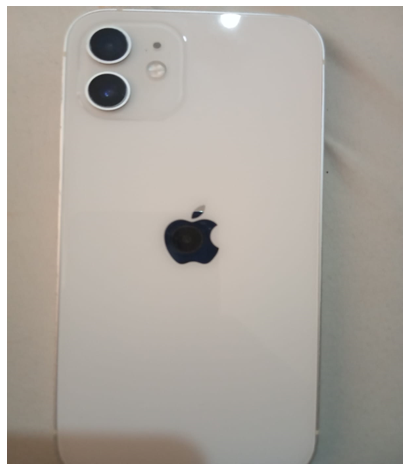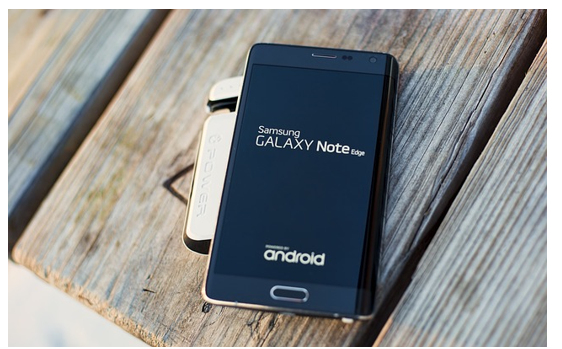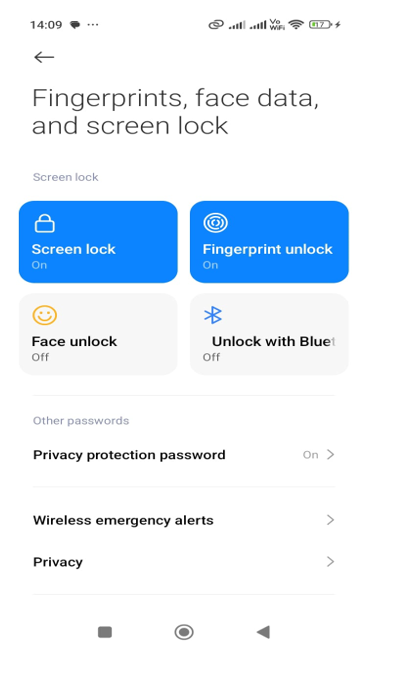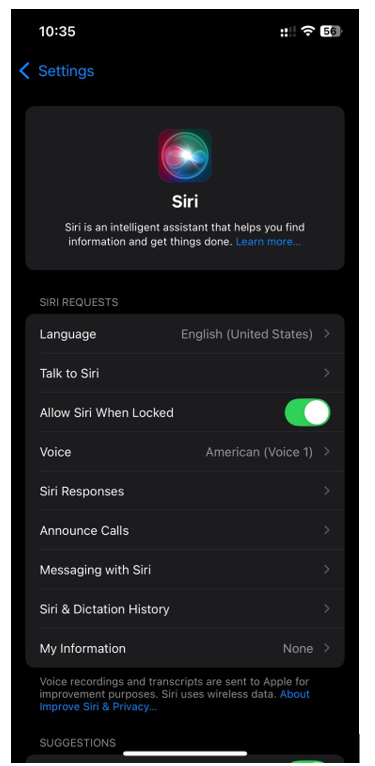Lesson 1: Understanding the Different Smartphone Types – iPhone vs. Android
One of the largest tech rivalries pitches iPhone against Android, with each side boasting many followers.
The elegant design, sophisticated environment, and user-friendly iOS operating system of Apple iPhones are famous. However, Android smartphones provide more hardware options, customization, and Google’s Android operating system.
What is an iPhone and an Android phone?
An iPhone is a smartphone manufactured by Apple that integrates a computer, iPod, digital camera, and cellular phone into a single device using a touchscreen interface. On the other hand, an Android phone is a modern smartphone based on the Android operating system (OS) developed by Google, utilized by many mobile devices.
iPhone vs. Android smartphone comparison
- Hardware/Design
The elegant constancy of iPhones should be weighed against Android’s numerous hardware and design alternatives.
iPhone: Premium, sleek, restricted options
iPhones are known for their luxury. Apple strictly oversees iPhone design, resulting in a clean, polished look. From the iPhone 15 Pro Max to the iPhone 6, iPhones have aluminum or stainless steel frames, glass backs, and precision workmanship.

Android: Many designs and hardware possibilities
Samsung, Google, Motorola, and OnePlus make Android phones with a variety of styles and hardware options. From inexpensive phones to folding phones like the Samsung Galaxy Z Fold5, Android phones are available for every budget and taste.

Many premium Android devices, like the Pixel 8 Pro, outperform iPhones in hardware. Android phones frequently have the newest CPUs, higher-megapixel cameras, bigger batteries, RAM, expandable storage, and unusual features like under-display cameras. Android phones have inconsistent build quality and design refinement compared to iPhones.
- Operating Systems and GUI
In the iPhone vs. Android argument, the mobile operating system and user interface determine the devices’ functionality and user experience.
iPhone: iOS is simple, reliable, and updated.
iPhones use iOS, which is simple, easy to use, and consistent across apps. iOS prioritizes simplicity and accessibility. The iOS home screen has app icons, widgets, and the App Library for app organization. iOS’s lock screen and Notification Centre notifications are merged.
Apple tightly controls iOS, issuing yearly upgrades with new features, security fixes, and performance improvements. iPhones receive frequent software upgrades for years, keeping them safe and up to date with new features. However, this limited ecosystem limits customization compared to Android.
Android: Brands may customize, adapt, and vary Android OS.
Android phones use Google’s flexible, customizable, and open-source Android operating system. Android users may customize their home screens using app icons, widgets, and launchers to customize their devices’ appearance.
However, Android experiences vary widely by phone brand and model. Android has a less uniform user experience than iOS since Samsung, Google, and Xiaomi add proprietary skins and functionalities. Android updates are also delayed and may not be accessible on all devices, depending on manufacturer and model.
- Apps, Ecosystem
iPhone: Curated, safe, and Apple ecosystem-integrated App Store
iPhones have access to the App Store, which has many high-quality applications and games. Apple reviews applications and has stringent requirements to ensure a safe and secure experience. App Store integration is also good with iMessage, FaceTime, Safari, iCloud, Apple Watch, and Apple TV.
A closed ecology can sometimes be a drawback. Apps must follow Apple’s rules and may not access system functionality. Popular Android apps may not work on iOS or may have reduced functionality.
Android: Google Play Store features more applications, flexibility, and Google services integration.
Android phones can access the Google Play Store, which has many apps and games, like TikTok and Reddit. The Play Store is more open than the App Store, giving developers additional system-level functionalities. This can increase app diversity and personalization.

Google Assistant, Maps, and Drive integrate well with Android apps. However, the Play Store’s openness makes it more susceptible to viruses and low-quality apps, so users should be wary when installing apps from unknown sources.
- Pricing and Value
Apple and Android smartphones differ in price and value, therefore price is typically a big concern. Consider the initial cost and long-term worth of each device when comparing iPhone versus Android.
iPhone: Premium, model-wide prices
The iPhone 15 Pro Max and other flagship versions are expensive. Apple prices its iPhones consistently, with older models sometimes discounted when new ones are announced.
Although iPhones cost more initially, they keep their value better than Android phones. Many iPhone owners maintain their smartphones for years before upgrading. Apple’s ecosystem and brand familiarity boost iPhone value.
Android: Affordable to premium.
Android phones price range from under £200 to flagship devices that equal or exceed iPhones. This diversity lets people pick a gadget that suits their demands and budget.
Low-cost Android phones sometimes compromise features or build quality, whereas luxury phones like the Samsung Galaxy S24 Ultra or Google Pixel 9 have top-notch specifications and features. Many Android phones lose value within months of release, unlike iPhones.
- Privacy and Security
Both sides of the fence prioritize security and privacy. Both platforms prioritize data security and attack prevention, although they utilize different methods.
iPhone: Privacy and security priority
Apple prioritizes iPhone and iOS security and privacy. iPhones have Face ID, Touch ID, and hardware-based encryption. Apple also rigorously reviews apps to reduce viruses and data leaks.

Apple has strong privacy measures and rules. iPhones include App Tracking Transparency, which lets users choose which applications can monitor them across apps and websites. Apple also values customer privacy and does not gather or sell user data for advertising.
Android: More vulnerable due to openness
Android is open-source and flexible, yet it has security vulnerabilities. Google has improved Android’s security, but the platform’s openness and vast range of devices and manufacturers can present weaknesses.
Android phones’ pattern locks, PINs, and fingerprint scanners may not be as secure as Apple’s Face ID or Touch ID. The Google Play Store’s more open app review procedure can also let bad programs through, placing consumers at risk of infection and data theft.

For privacy-conscious users, Android lets them give or refuse app permissions and regulate background data consumption.
- Intelligent Assistants
Both smartphones have intelligent assistants for navigation, answering inquiries, and hands-free chores. When choosing between iPhone and Android for intelligent help, compare Siri’s seamless integration with Android’s more adaptable and third-party-friendly Google Assistant.
iPhone: Siri works effectively with iOS but has limited third-party compatibility.

Siri is built into iOS on iPhones. You may use the system to send messages, answer questions, create reminders, and make calls. Siri also works nicely with Apple Watch, Apple TV, and HomeKit smart home products.
Siri has fewer third-party app integrations than Google Assistant. Siri supports certain third-party apps, but Google Assistant has a wider selection and deeper integration.
Android: Google Assistant has strong, customizable features and third-party integration.
Android phones come with Google Assistant, one of the most powerful and competent intelligent assistants. Google Assistant uses its large knowledge base and AI to answer user requests accurately and contextually.
Google Assistant understands natural language, makes tailored suggestions, and integrates with many third-party applications and services. Google Assistant can book reservations, handle smart home devices, and send money. Android users may utilize Google Assistant via voice, text, or Pixel phone squeezes.
If you already have an iPad or Mac or value simplicity, security, and a consistent user experience, an iPhone may be perfect for you. iPhones have frequent software upgrades, robust privacy protection, and seamless integration with iCloud, iMessage, and other Apple services. However, if you value more customization, a larger range of devices at different prices, and more file management and third-party program freedom, an Android smartphone may be superior. The Google Pixel 8 Pro and Samsung Galaxy S24 are tech-savvy Android devices for serious users.
Samsung Phones and Google Pixels There are two main smartphone names that have become predominant currently: Google Pixel and Samsung Galaxy. However, the fact that they both use the same Android operating system is the only thing that makes them alike. Let’s figure out which choice might be best for you.
Why you should get a Samsung Galaxy
Samsung makes its Galaxy phones with a “maximalist” approach. Some have big screens, almost six cameras on the back, and a lot of features that aren’t needed most of the time.
This tells the whole story of Galaxy phones. If you want an Android phone with every feature you can think of, your search is over. Without a doubt, not every Samsung smartphone is the same. The company makes phones with a range of prices.
Samsung has a lot of smart tools and also has great software support. The company offers free Android updates for seven years for new phones, such as the Galaxy S24. Most Samsung phones will get four updates to Android and security changes easily. That length of time is quite long, which makes your purchase more valuable.
Samsung is a company that always comes up with new tech ideas. Motorola and Google now both make folding phones, but Samsung has been pushing phones with folding screens in the U.S. for a longer time. Standard versions, like the Galaxy S24 Ultra, have a number of functions.
Galaxy phones have a lot of features, great software support, and high-quality hardware. If you like Android phones, then Samsung Galaxy is a great pick.
Why Google Pixel Is Better
Samsung phones are very different from Google Pixel phones. The Pixel program makes the experience a lot easier to use. A lot of people think that Pixel phones are like iPhones but for Android.
While a Galaxy phone can do almost everything a Pixel can do, the other way around is not possible. Pixel phones don’t have a lot of extra features.
The cameras on Pixel phones get a lot of attention. A Pixel is the best choice for a simple camera experience that takes beautiful pictures. In addition, you get some customization tools that are only available on Pixel smartphones.
Google’s software support is about the same as Samsung’s. New Pixel phones will get seven years of security and feature patches and improvements to Android. Old versions of Android only get updates and security changes every five years.
Pixel products don’t have a lot of options for people who want a variety. Google usually releases two “flagship” models and one inexpensive A-series gadget every year. The Pixel 8, Pixel 8 Pro, and Pixel 8a are the current ones. The company added the Pixel Fold to its line of products in 2023. Unlike Samsung, there isn’t a “Ultra” type that has all the possible features. The most expensive Pixel has just two cameras on the back.
The idea behind Google Pixel phones comes from how simple they are and how well they can take pictures. A Pixel phone is a great choice if you like Google, like things to be simple, and like taking pictures a lot.
Which choice should you make?
The story of the Samsung Galaxy vs. Google Pixel shows how maximalism and simplicity are different. Samsung has a lot of different types, a lot of different features, a lot of different colors, and a lot more. There is a Samsung phone for everyone.
Google’s way is much more focused and effective. It only release a certain number of phones each year in a few different colors. The Pixel experience is meant to be simple and open to everyone. In Pixel products, the camera is very important.
Which choice should you make? It’s likely that you’d be happy with any phone. Samsung Galaxy phones are a good choice if you want to get the most out of your smartphone. If you want a more personalized experience, a Pixel phone is a great choice. They offer different features, but it’s up to you to choose.


